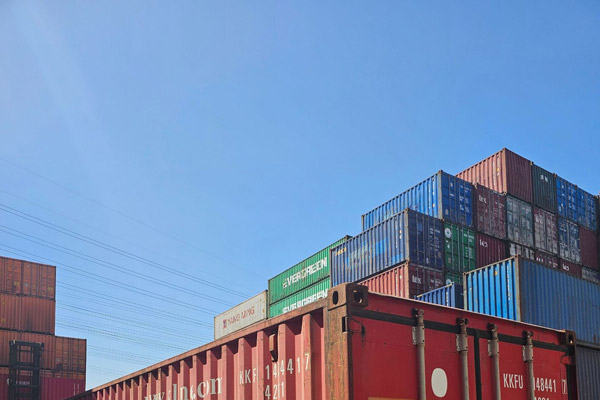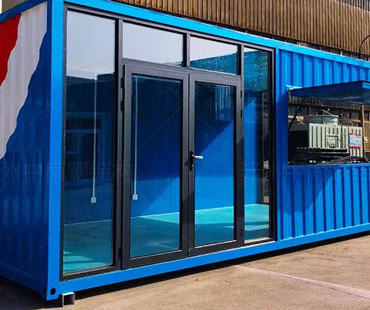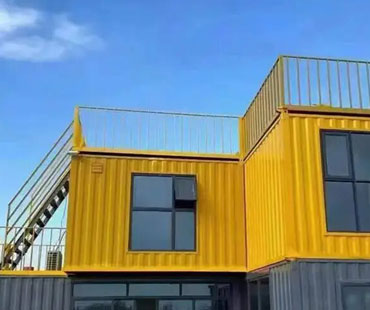Containers have revolutionized the way goods are transported across the globe, serving as the backbone of international trade. However, their utility extends far beyond mere transportation. Zhengyu Container Housing Company explores the diverse applications of containers, highlighting their innovative uses in various sectors, including construction, housing, retail, and sustainable practices.
1.Container Architecture: A New Era of Sustainable Building
One of the most exciting applications of containers is in architecture. Container homes, offices, and commercial spaces have gained popularity for their affordability, durability, and eco-friendliness. Utilizing repurposed shipping containers significantly reduces the carbon footprint associated with traditional building materials. Architects and builders are increasingly opting for this innovative approach, transforming containers into stylish and functional living spaces.
For example, projects like the "Container City" in London demonstrate how containers can be creatively arranged to form vibrant communities. These structures not only provide affordable housing options but also contribute to urban regeneration, turning unused land into thriving neighborhoods.
2.Retail Revolution: Containers as Pop-Up Shops
In the retail sector, containers are being transformed into dynamic pop-up shops, food stalls, and even entire shopping complexes. These mobile retail spaces offer a unique shopping experience and are particularly popular at festivals and events. Their portability allows businesses to set up shop in high-traffic areas without the long-term commitment of a traditional lease.
Notable examples include food container markets, where multiple vendors share a single shipping container space, creating a vibrant dining atmosphere. This model not only reduces overhead costs for individual businesses but also encourages a sense of community among local vendors.
3.Emergency Relief and Humanitarian Aid
Containers also play a crucial role in disaster relief and humanitarian efforts. They can be quickly converted into temporary shelters, medical facilities, or storage units for food and supplies during emergencies. Their modular nature allows for rapid deployment in disaster-stricken areas, providing essential services to communities in need.
Organizations like the United Nations and various NGOs have utilized containers to create mobile clinics and field hospitals, ensuring access to healthcare in remote or disaster-affected regions. This versatility makes containers an invaluable resource in crisis management.

4.Education and Training Spaces
In the field of education, shipping containers are being repurposed into classrooms and training centers. Container schools are particularly effective in remote areas where traditional school buildings may be impractical or too costly to construct. These container classrooms are often equipped with modern technology and can be designed to meet specific educational needs.
Moreover, mobile training units made from containers can travel to underserved communities, providing vocational training and workshops to enhance skills and improve employment opportunities. By breaking down geographical barriers, container-based education initiatives can make a significant impact on local populations.
5.Sustainable Urban Farming
As urban areas become more populated, the need for sustainable food sources has never been greater. Shipping containers are being transformed into hydroponic farms, allowing for the cultivation of fresh produce in urban environments. These container farms optimize space and resources, utilizing advanced technologies for efficient farming practices.
By growing food locally, these initiatives reduce transportation emissions and provide communities with fresh, healthy options. Additionally, container farms can be established in food deserts, addressing food insecurity and contributing to community health.
6.Art and Cultural Spaces
Containers have also found their way into the world of art and culture. Artists and cultural organizations are using shipping containers as galleries, performance spaces, and studios. This trend has led to the creation of unique art installations and community art projects that engage the public in innovative ways.
For instance, container art galleries can pop up in vacant lots, transforming neglected spaces into vibrant cultural hubs. These initiatives not only promote local artists but also encourage community engagement and revitalization.
The applications of containers extend far beyond their original purpose of transporting goods. From sustainable architecture and innovative retail solutions to emergency relief and educational initiatives, containers are reshaping various aspects of our lives. As we continue to explore and capitalize on these diverse uses, the potential for containers to contribute positively to society is limitless. Their versatility, affordability, and sustainability make them a valuable asset in addressing some of the world's most pressing challenges. Embracing these innovative applications can pave the way for a more sustainable and interconnected future.


